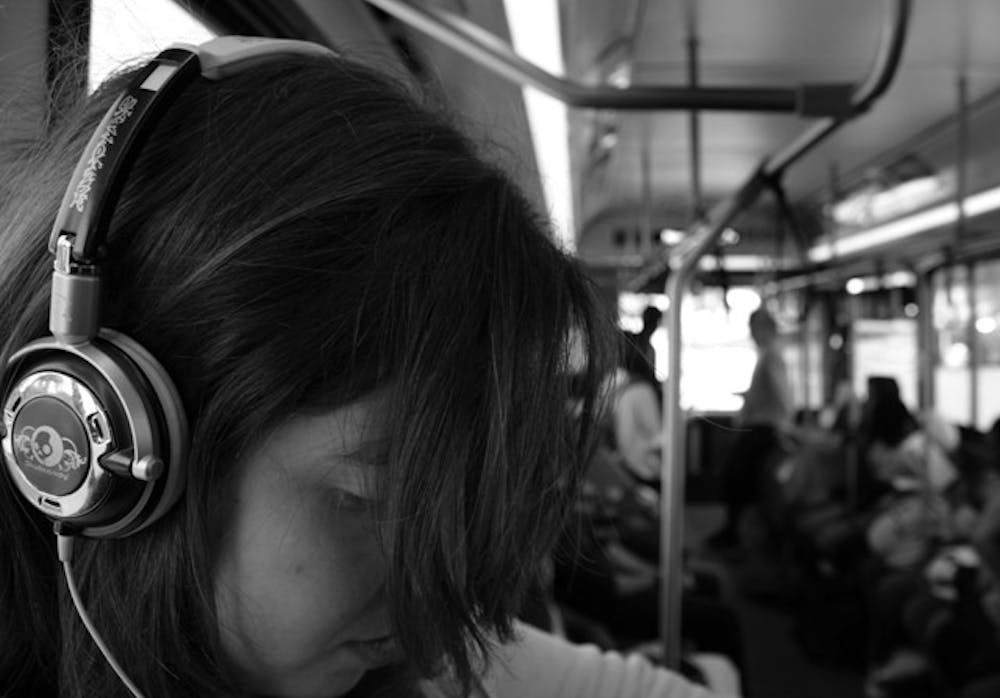In 2005, in preparation to apply for citizenship and get papers for his children, Mariano married another woman. There was a wedding cake, a party and a certificate.
He had hired her, a naturalized Cuban woman and U.S. citizen, to be his wife only on credit card statements, on an apartment lease agreement and in family photo albums.
For the wedding, Veronica served as the photographer.
She would often photograph the “family” during weekend outings — trips to the Dolphin Mall, the park or the beach. The beach trips, though, always seemed to fall on the grayest days.
The relics of precious memories were nothing more than evidence to convince immigration officials the marriage was legitimate.
The girl remembers the days of fake parties to decorate Christmas trees, insincere smiles and forced hugs, laughing now at the acting job.
“The pictures were so bad,” she says. “You could see it.”
She looks down, smile fading.
“It was all so illegitimate, but it was all for me and my brother.”
When Mariano and the woman married, they had notified the government to begin the process of getting papers.
They needed to forge a documented life together, and they needed their day at the immigration office to prove it was real.
Their day came three years later in 2008.
The girl was 17.
She remembers it clearly: It was mid-November, sunny and “warm as hell — like always.”
She had convinced herself she didn’t feel well, and her mother let her stay home from school.
Sitting in the living room, finishing her homework, she heard voices outside the front door.
“Que se le va ser?” she heard her father tell his sister, who had driven him to his meeting with immigration officials.
It was a comment the girl knew he made when things didn’t go as planned: “What can you do?”
As she got up to walk to the door, her father came inside, wearing a button-down shirt, light-blue slacks and his ever-present cell phone holster.
They stared at each other for only seconds before it was clear what had happened.
They sat down together, and he could no longer hold it in.
“What else does this f---ing country wants me to do? I tried everything. I tried so hard.”
His head sunk into his daughter’s shoulder. Both of them wept. Her shirt was drenched in his tears. It was the first time she had ever seen him cry.
“Why am I so useless?” he cried out.
“No,” she told him. “You’re not useless. You are the strongest man in the world.”
Weeks after Mariano and his family lost their chance at citizenship, they received a letter telling them they had 30 days to get out.
Keeping a low profile, the family moved into a new house and stayed for another two years.
It was enough time for his daughter to finish growing up where she had come of age, graduate high school and make her decision.
She could either stay and go to school or go back to Argentina with her family.
Her family was leaving for good, and she had a choice.
“If you stay,” Mariano told her, ”let it be for a reason.”
Three months ago, they said their goodbyes, just days before her first day of classes.
She had chosen to stay, go to school, get an education and hope the government would give her the opportunity to work herself toward becoming an American.
“I want to work,” she says. “I want to pay taxes. Please, let me pay taxes.”
Opponents of the DREAM Act call it an exercise in amnesty, a free pass for people who have violated the law.
Supporters find it hard to believe many members of Congress are willing to reject a measure that would increase tax revenue and military recruitment.
She says she understands both sides, and she thinks it should take work to become a citizen — learning English, getting an education and even assimilating the culture.
After finding out about the DREAM Act, she became involved with the movement in support of the bill. Like many of those like her, she calls herself a DREAMer.
She is still nervous and unsure of the chances the bill has of passing.
“I don’t know,” she says. “I just don’t know.”
She insists that she is lucky and that her story is not as bad as others.
“I know people think this is a pity story,” she said. “I don’t want people to feel sorry for me.”
Her wish is to not have to live with fear and uncertainty.
More than anything, she wants to just be that girl on the bus.
She spends almost 90 minutes every day busing to and from school, time she spends reading and doing math homework.
An aspiring writer, she sometimes scribbles in the most recent of her 18 journals.
Sometimes she’ll crack open a book from her shelf, like works by Gabriel Garcia Marquez, Isabel Allende and H.G. Wells.
A lot of the time, she’ll listen to some of her favorite music — everything from Argentine singer Gustavo Cerati to The Rolling Stones to Iggy Pop and the Stooges.
When she wants to hear the music, she pulls out her iPod and slips her big headphones over her ears.
Then is when she fades into the crowds of busy students who bustle through the doors, each with their own headphones playing a different tune.
Her next stop, she hopes, is a sense of normal.
Editor's note: For the first installment, click here.






